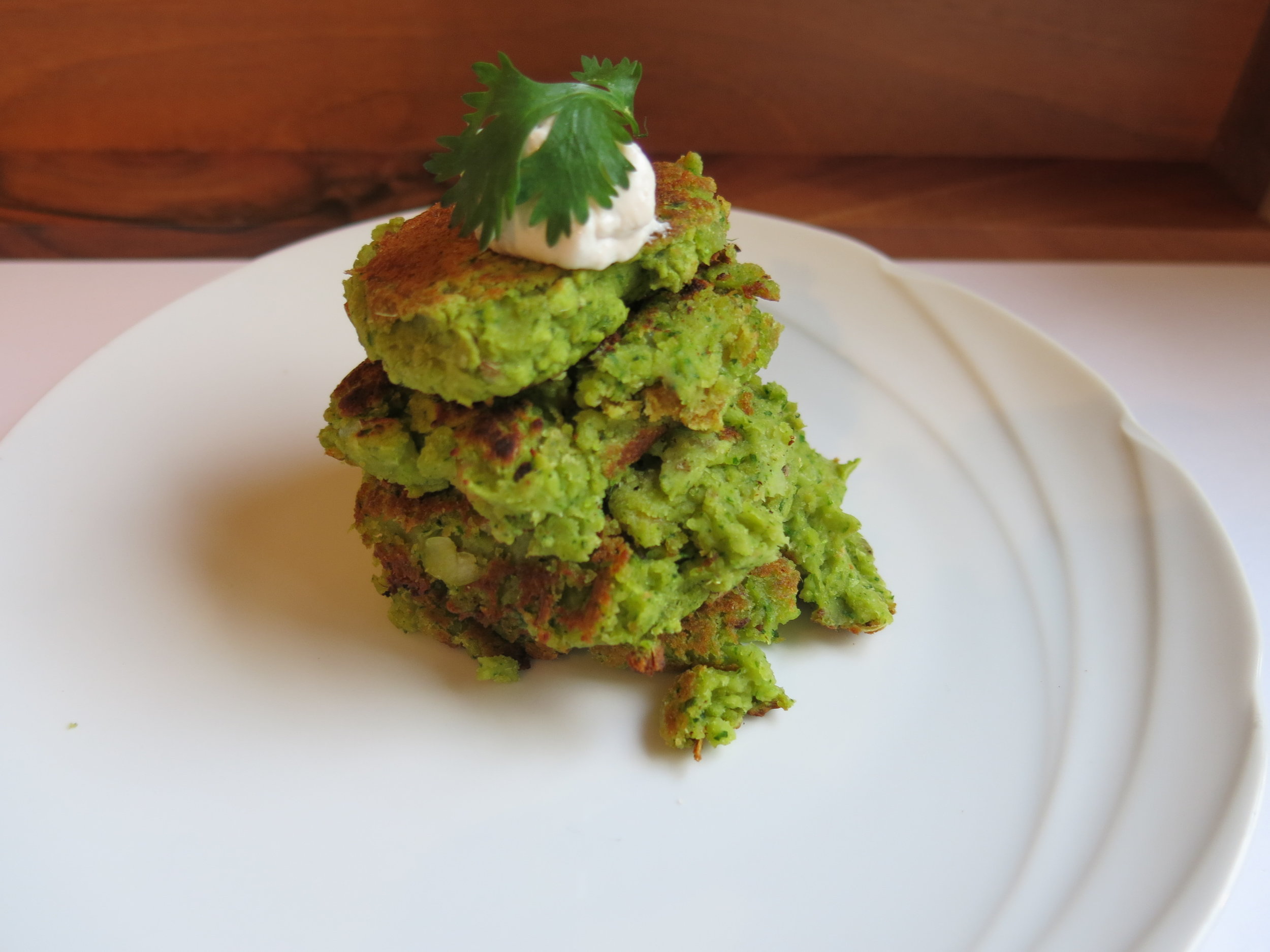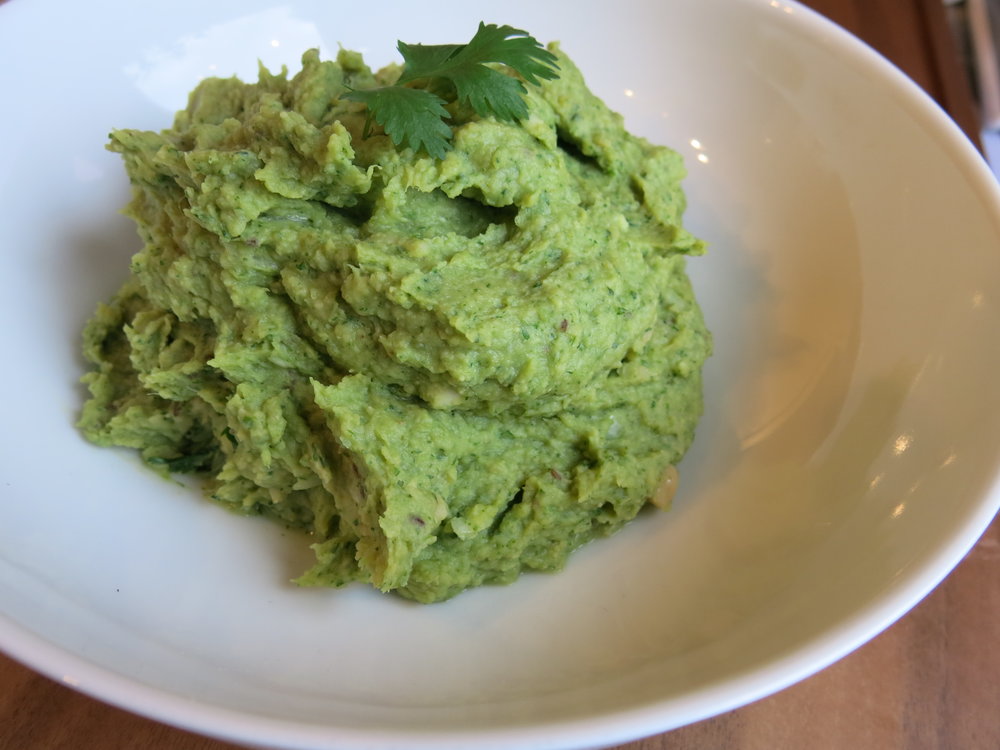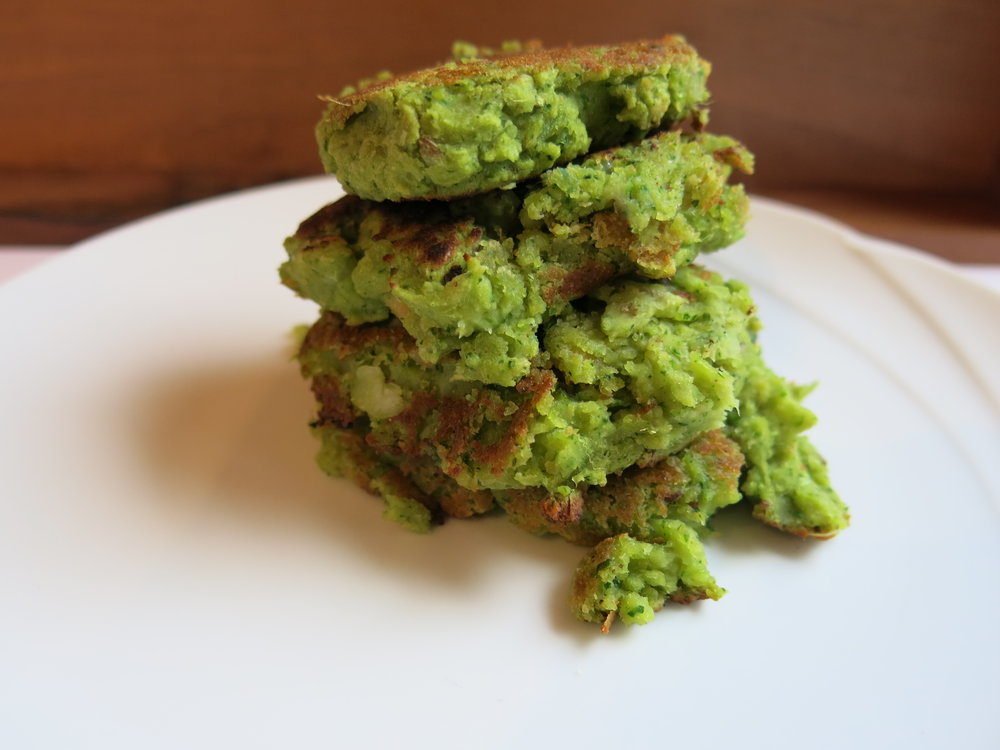Healthy Green Falafel With Tahini Sauce
Having lived in Dubai for two years, I have a deep appreciation for Middle Eastern cuisine. Tabouleh, hummus, pita bread, baba ghannouj, you name it. I am obsessed with all of them. And falafel deserves a special spot in that list. As much as I love eating this dish in a restaurant, I have always found the idea of trying to replicate the creamy texture of falafel very daunting. I've struggled making hummus in the past, so this seemed even more impossible. Note: Before moving out of my parents house to go to university, my cooking skills were limited to making omelette and even today I don't really consider myself a good cook. I need to follow recipes on the dot, otherwise I freak out that the end result won't be good and I absolutely don't trust my taste buds when it comes to adding spices. Anyways...
Now that I am living in Switzerland and can no longer indulge in authentic Middle Eastern dishes whenever I please, I have a serious constant craving for hummus and falafel. That's why, a couple of months ago my friend Laura (who also lived in Dubai with me and can understand the chickpea craving!) and I decided to finally try making our own batch of green falafel with tahini sauce.
Why I love chickpeas
When falafel is made the traditional way, it is indeed a vegan food. There are many different variations nowadays of which some aren't vegan, but either way it is a great source of protein due to the chickpeas. Did you know chickpeas are also called garbanzo beans? I had no idea until I looked it up today. Either way, they have a delightful nutty taste and a buttery texture. They're an extremely versatile legume, yes - legume, and a popular ingredient in Middle Eastern and Indian dishes. Most people only know beige chickpeas, but they actually exist in many other colours such as black, green, red and brown. How about a black hummus for a next recipe post? Besides protein, they are an excellent source of fiber and contain exceptional levels of iron, vitamin B-6 and magnesium. Because of the high fiber level, chickpeas are known to help manage diabetes, prevent constipation and help regularity for a healthy digestive tract. Chickpeas can also keep you full longer, especially when consumed in a warming winter dish such as a chickpea stew.
We initially used Kelly's recipe from Just A Taste, but we must have gone wrong somewhere along the way because the texture turned out way too liquid. Since then, I have repeated the recipe and slightly tweaked it here and there to get the perfect consistency. I also started doing some research online and found that I wasn't the only one struggling the get the consistency right. Here's what I gathered:
Don't use canned chickpeas, as they are too tender and contain too much moisture. Instead, buy dried chickpeas in the supermarket and soak them overnight. Just make sure to drain them really well the next day, otherwise you are left with the same dilemma as with canned chickpeas.This way you'll also avoid the additives and high salt content. Win win!
The key is finding the right amount of flour so that the patties stick together well but aren't too dry. This can really depend on the length of soaking or the quality of your food processor. If you have a super fancy high-powered food processor, you might need to add a bit more flour because the consistency will be too creamy otherwise. So don't get frustrated if you can't seem to get the consistency right with the ingredients I listed and instead play with the proportions a bit yourself.
The texture can be really varied depending on how tightly you press the balls when forming. The tighter, the less likely they are to fall apart, but the heavier the texture.
They would go fabulously with some fresh pita bread, lettuce, tomatoes and a tahini sauce such as this one. Personally, I enjoy them with a dollop of hummus. Not because I don't like pita bread (I love it), but because I try to avoid gluten as much as possible due to a slight gluten intolerance. The mixture was actually so good on it's own, BEFORE frying, that Laura and me admittedly had a couple of spoons before it hit the pan!
Green Falafel with Tahini Sauce (Serves 7)
Ingredients
2 cups chopped white onion
6 garlic cloves
2 cups cooked chickpeas, drained
1 cup parsley leaves
1 cup cilantro leaves
1 tsp. salt
¼ tsp. chili powder
2 tsp. cumin
2 tsp. baking powder
¾ cup all-purpose flour
Canola oil, for sauteing
Instructions
Add onion and garlic to food processor and pulse just until roughly chopped. Remove the mixture and set it aside.
Add chickpeas, parsley, cilantro, salt, chili powder, and cumin to food processor and pulse until they are roughly blended.
Return onion mixture to the food processor, along with baking powder and ¼ cup of flour. If the mixture seems to sticky, add another ¼ cup of flour and so forth.
Transfer the mixture into a bowl, cover with cling film and let cool in the fridge for 1 hour.
Once the falafel mixture has chilled, use a small ice cream scoop or spoons to form the mixture into balls.
Set a large sauté pan over medium heat and add a good amount of canola oil so that the pan is well-coated and let it heat up for 3 minutes. Now add the falafel balls one by one, leaving them cook for around 3 minutes on each side and then flipping them to cook for another 3 minutes on the other side.
Move the falafel to a cooling wrack lined with paper towel and season with salt as desired.
Serve wrapped in a pita bread, lettuce leaf or simply with a bit of hummus on the side.




























